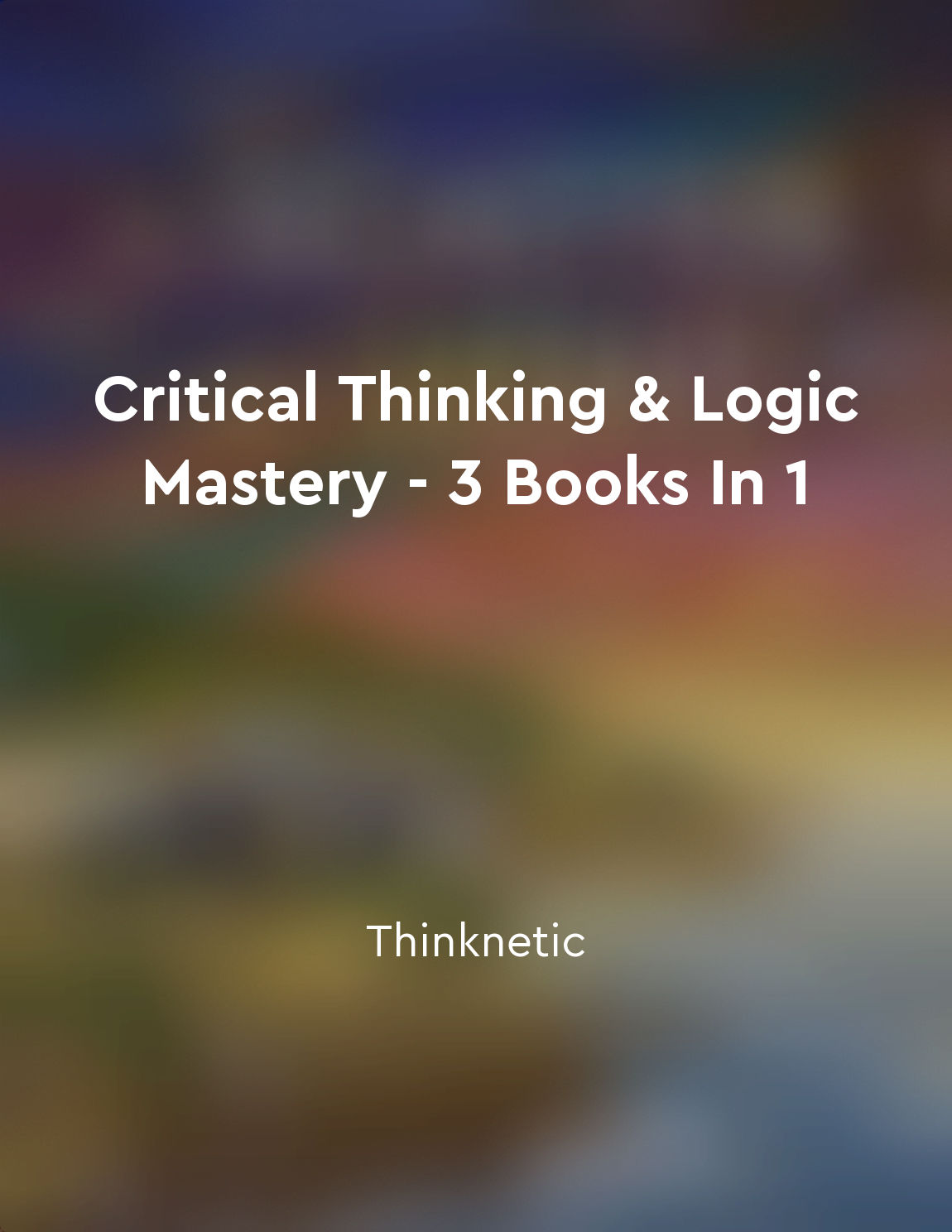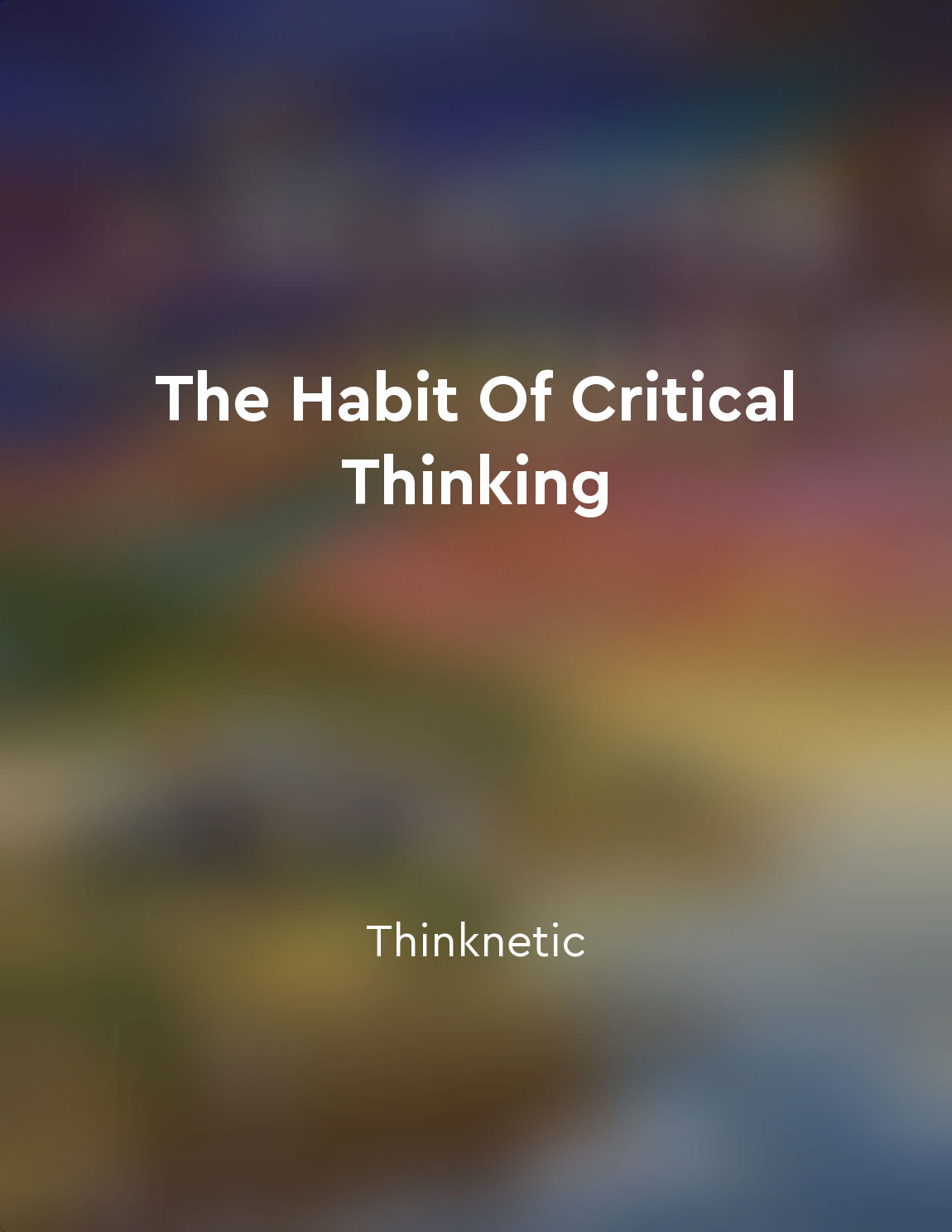Audio available in app
Recognizing bias and prejudice enhances critical thinking from "summary" of Critical Thinking & Logic Mastery - 3 Books In 1 by Thinknetic
When we talk about recognizing bias and prejudice in our thinking, we are essentially talking about being aware of our own preconceived notions and assumptions that may influence our judgment. Bias and prejudice can cloud our reasoning and lead us to make decisions based on faulty information or flawed logic. By being able to identify these biases and prejudices, we can take steps to mitigate their impact on our critical thinking skills. Critical thinking requires us to approach information and arguments with a certain level of skepticism and open-mindedness. If we are not aware of our own biases and prejudices, we may unknowingly accept information that aligns with our preconceived beliefs while rejecting information that challenges them. This can hinder our ability to evaluate arguments objectively and come to well-informed conclusions. By recognizing bias and prejudice in our thinking, we can engage in more thoughtful and nuanced analysis of information. We can question our own assumptions, consider alternative perspectives, and weigh evidence more objectively. This not only enhances our critical thinking skills but also helps us to be more open to new ideas and willing to change our minds in light of new evidence. Furthermore, being aware of bias and prejudice in our thinking allows us to engage more effectively with others who may hold different viewpoints. Instead of dismissing opposing arguments out of hand, we can engage in constructive dialogue and debate. This can lead to a more well-rounded understanding of complex issues and help us to reach more informed and thoughtful conclusions.- Recognizing bias and prejudice enhances critical thinking by enabling us to approach information and arguments with greater objectivity, skepticism, and open-mindedness. It allows us to evaluate evidence more effectively, consider alternative perspectives, and engage in more constructive dialogue with others. By being aware of our biases and prejudices, we can sharpen our critical thinking skills and ultimately make more informed and rational decisions.
Similar Posts
Decisionmaking can be influenced by emotions
Emotions play a significant role in the decisions we make. Our feelings can sway us in one direction or another, often without ...

Allyship requires action
Allyship is not just about words; it's about action. It's about showing up for others, standing with them, and actively working...

Evaluating evidence is crucial in logical reasoning
In the realm of logical reasoning, the evaluation of evidence plays a pivotal role in the process of making sound arguments and...

Irrationality can stem from conflicting desires or beliefs
Irrationality can arise when an individual holds conflicting desires or beliefs that cannot be reconciled. These conflicting de...
Distrust in experts is widespread
The idea that distrust in experts is widespread is not a new one. In fact, it has become a common refrain in discussions about ...

Power dynamics play a role in manipulation
Manipulation is a complex dance of control and influence that often hinges on power dynamics. Understanding power dynamics is c...
People tend to overvalue what they already have
When people have something in their possession, they tend to place a higher value on it than they would if they didn't own it. ...
Using contrast can enhance persuasion
When it comes to persuading others, using contrast can be a powerful tool in your arsenal. By highlighting differences between ...

Representativeness bias leads to stereotyping
Representativeness bias is a cognitive shortcut that leads us to make judgments based on how closely an object or event resembl...

Strive for continuous improvement
Continuous improvement is a fundamental concept in the realm of critical thinking. It involves the unceasing effort to enhance ...

